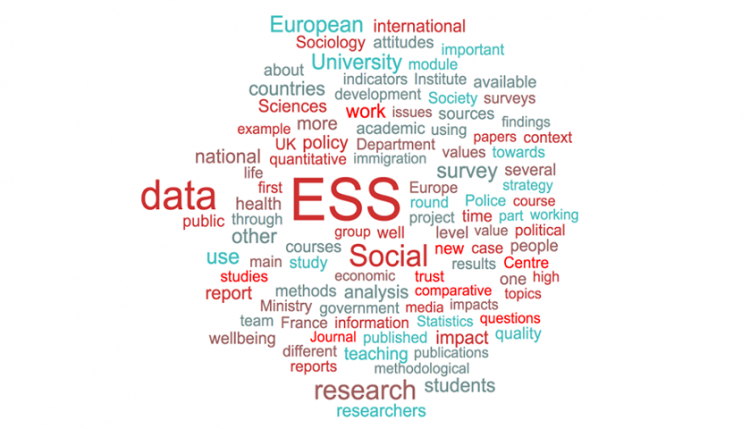
European Social Survey has high impact
An independent report commissioned by the ESS HQ has found that the European Social Survey (ESS ERIC) has high levels of academic, teaching and non-academic impact across Europe.
The Impact Study was undertaken by Technopolis Group (UK), who were awarded the work following an open tender process carried out by the ESS ERIC.
When it comes to academic impact, the report established that there are over 2,700 ESS-based academic publications, of which over 900 are journal articles listed in the Web of Science.
The bibliometric analysis – undertaken by the Centre for Science and Technology Studies (CWTS) – revealed that 22% of these journal articles are amongst the top-10% most cited articles within their field, 12% above the expected average.
Technopolis analysed information about over 100,000 ESS data users and found that the highest proportion of users define themselves as students (63.7%) followed by faculty and research (19.2%).
The study established that more than 20 universities across Europe have over 500 registered users, indicating widespread teaching use in these organisations.
The report also found that in many other institutions, lecturers often download the data themselves and distribute it amongst their students for analysis.
When it comes to non-academic impact, the report identified numerous examples where ESS data has had an influence on public policy, changes in the law and use by public, private and charitable organisations.
The Impact Study included an annex detailing 36 case studies of academic, teaching and non-academic impact in current member and observer countries.
The ESS is widely used as a teaching resource at a number of institutions across Europe, including University of Vienna, University of Geneva, Charles University Prague, Masaryk University, University of Tartu, Sciences Po, Radboud University Nijmegen, University of Ljubljana and Umeå University.
The report highlighted the use of ESS data within the Active Ageing Index (AAI) – a tool created by the United Nations Economic Commission for Europe (UNECE) and the European Commission through DG EMPL (Employment, Social Affairs and Inclusion).
ESS data contributed in the process of preparing the Estonian Strategy of Children and Families 2012-2020 with data collected contributing to internal policy discussions at the Ministry of Social Affairs.
The Centre for Judicial Studies (Centro de Estudos Judiciários, CEJ) in Portugal now includes data on the evaluation of justice and trust in judicial institutions in the curriculum for the training of future judges and public prosecutors.